Adult ADHD and Challenges
“Joel and Judith Lubar report that adults with ADD are likely to have reactive depression because of repeated failures and inability to meet their own, often unrealistic, standards. Indeed, between 70 and 80 percent of children with ADHD continue to experience significant problems in adulthood.
Neurotherapists have known for some time that a far greater percentage of children with ADHD than those without that condition develop problems with alcoholism and drug addiction. These patterns were reported in 2001 by Maria Sullivan of the Columbia Presbyterian Medical Center in New York. Sullivan points out that about 50 percent of adults with ADHD symptoms have a substance use disorder, including more than 50 percent greater nicotine dependence compared with the general population.
Individuals with continuing ADHD symptoms, she reports, abuse drugs earlier, use them longer, and are more likely to progress from alcohol abuse to other medical and nonmedical drug abuse than individuals without ADHD symptoms.” pp. 22-23. Biodfeedback for the Brain by Paul G. Swingle, Ph.D. https://jtbcp.riau.ac.ir/article_28_2.html?lang=en


